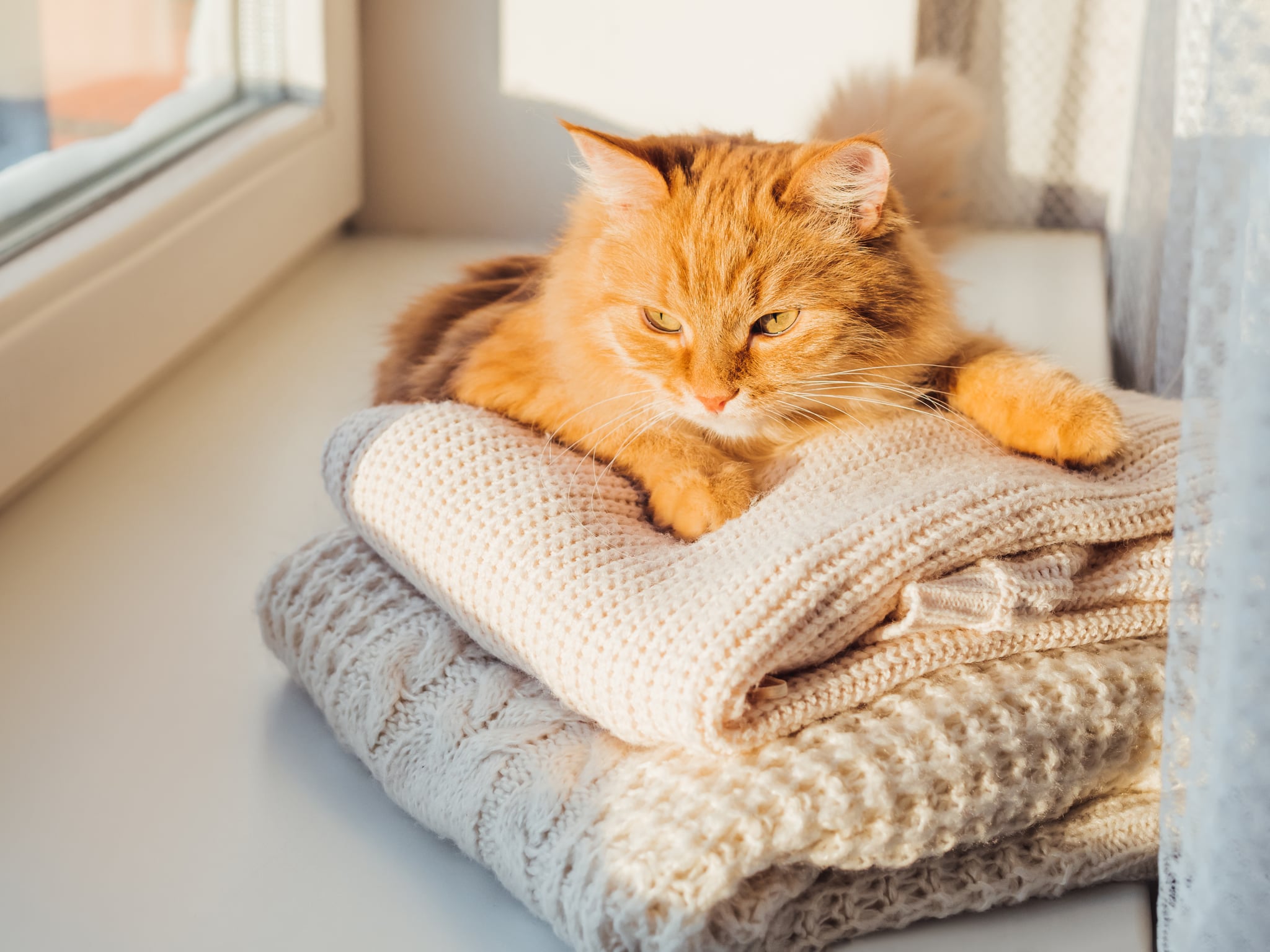Find the latest information about Why Does My Cat Like To Eat My Hair in this article, hopefully adding to your knowledge.

Why Does My Cat Like to Eat My Hair?
Like many cat owners, I’ve often found myself wondering why my feline friend has an inexplicable fondness for my hair. Is it a sign of affection or a symptom of a nutritional deficiency? As it turns out, cats eating hair is more common than you might expect. I embarked on a research journey to unravel the mysteries behind this peculiar behavior.
Hairballs: A Common Culprit
One of the most common reasons cats eat their hair is to groom themselves. As they lick their fur, loose hair is swallowed. This hair can accumulate in the stomach and form hairballs. Hairballs are usually not a cause for concern and are often eliminated through regurgitation or bowel movements. However, if your cat is frequently vomiting or straining to pass a hairball, it may be a sign of an underlying medical condition.
Pica: A Behavioral Problem
In some cases, cats may eat hair due to a psychological condition called pica. This compulsive eating disorder causes cats to ingest non-food items like wool, plastic, or even their own hair. The exact cause of pica is unknown, but it is often associated with stress, anxiety, or boredom.
Malnutrition and Nutritional Deficiencies
Cats that are malnourished or have nutritional deficiencies may also resort to eating hair. A diet that is deficient in certain vitamins and minerals can cause cats to crave non-food items to supplement their intake. Ensure your cat is fed a balanced and high-quality diet to prevent nutritional deficiencies.
Boredom and Attention-Seeking
For cats that are bored or attention-starved, eating hair can be a way to elicit a reaction from their owners. Cats that are not getting enough attention may chew on hair as a means of entertainment or to draw attention to themselves. Providing your cat with plenty of toys, interactive play sessions, and affection can help curb this behavior.
Medical Conditions Related to Hair Eating
While less common, certain medical conditions can also contribute to hair eating in cats. For example, cats with gastrointestinal disorders may eat hair to soothe an upset stomach. Additionally, liver disease or pancreatitis can lead to nutritional deficiencies that trigger pica.
Tips and Expert Advice for Dealing with Hair Eating in Cats
To prevent or discourage hair eating in cats, it is important to address the underlying cause. Here are some tips and expert advice:
Regular Grooming: Brush your cat regularly to remove loose hair and reduce the formation of hairballs.
Interactive Play Sessions: Engage your cat in regular play sessions to provide mental and physical stimulation and to reduce boredom.
Water Fountain: Consider providing your cat with a water fountain to encourage them to drink more water, which can help soften and lubricate the digestive tract and reduce the formation of hairballs.
Healthy Diet: Feed your cat a balanced and high-quality diet to ensure they are getting the necessary nutrients.
Address Underlying Conditions: If you suspect your cat is eating hair due to a medical condition, consult a veterinarian for diagnosis and treatment.
FAQs on Cat Hair Eating
Q: Is hair eating in cats dangerous?
A: Hair eating is usually not dangerous, but frequent hairball formation or pica can lead to health problems.
Q: How can I tell if my cat has pica?
A: Signs of pica include eating non-food items, such as wool, plastic, or hair, and compulsively licking or chewing on objects.
Q: Can I give my cat hairball remedies?
A: There are over-the-counter hairball remedies available, but it’s recommended to consult a veterinarian before giving them to your cat.
Q: Is it normal for kittens to eat hair?
A: Yes, kittens may eat some hair while grooming, but it’s important to monitor their behavior and ensure they are not doing it excessively.
Conclusion
So, there you have it – the reasons why your cat may be eating your hair. By understanding the underlying causes and implementing the tips and advice outlined above, you can help your feline friend break this habit and maintain a healthy and happy life. Remember, cats are curious creatures with unique behaviors, and it’s always best to consult a veterinarian if you have any concerns about your cat’s well-being.
Are you interested in learning more about cat behavior and health? Explore our blog for more informative articles and insights into the fascinating world of cats.

Image: www.popsugar.co.uk
You have read Why Does My Cat Like To Eat My Hair on our site. Thank you for your visit, and we hope this article is beneficial for you.